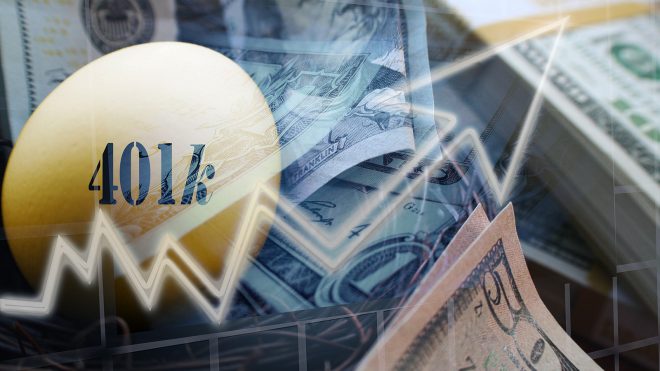The economy of the United States looks worse than it has since 2009 when the housing market crashed and caused the “Great Recession.”
Since then, the threat of a financial collapse has always hung over the country, with one financial guru after another predicting it.
But now that the economy is finally reacting to the effects of the pandemic, things look much worse. Thousands of small businesses have shut down for good, and it looks like a few big chains are going to do the same.
Since its peak in 2020, unemployment has slowly gone down, but some of the government’s efforts to help people are making it hard for them to get jobs again.
Why Is That So?
On top of that, Congress has borrowed trillions of dollars from the Federal Reserve Bank, which is a lot like making money out of thin air. This is starting to cause inflation to rise, which is very likely to lead to a recession.
This could have bad effects on all of us. Not only does inflation hurt our ability to buy things because our money doesn’t go as far, but it also hurts investments. No matter what investments you or I have now, their value will go down, even if the cash value seems to go up.
But what does up mean, if everything else costs more?
You Might Have Investments You Don’t Know About
What’s that? You don’t have any investments, right? Does your job offer you a retirement account?
Then you have investments. It’s probably in the form of a 401K, which is used by many companies so that you can take your retirement savings from one job to another. This helps make sure that when you retire, you’ll have more than just Social Security to live on.
With that being the case, any contraction in the economy, and especially any recession is going to result in a negative effect on your retirement.
You might not see it right now, but when it’s time for your annual review of your retirement account, you’ll probably see that you won’t get as much when you retire as you thought you would.
This is likely to keep happening as long as inflation is going up or the economy is likely to go into a recession. At this point, it’s hard to say how long this will last.
What can you do, though? Most of the time, professionals take care of these retirement funds, and you don’t have any direct contact with them or say over how they are invested. Or do you? Is there anything you can do with that money that still follows the law and protects your investment at the same time?
Yes is the answer to that question. Even though we don’t always get to choose which investments to make, most of these retirement accounts do give us the chance to pick from a number of different “investment tracks.” Then, of course, any money from previous jobs that we have put into our 401K is ours, giving us a lot more control. Now, the question is: what to do?
Recession-Proof Investments to Consider
There are some investments that are pretty much safe from a recession.
When you know what they are, you can make smart choices about how your 401K is invested. Considering how shaky the economy is at this time, that’s something I wouldn’t waste time doing.
The first rule is to look for investments that are safe.
That means giving up the ones with a high yield in favor of the ones that are steady. Even though the return on 10-year Treasury notes is only 3.76 percent, it’s still a lot better than losing 10%.
Most people think of bonds as one of the safest investments you can make.
US Savings Bonds, Municipal Bonds, and other government-issued bonds may not pay a lot of interest, but it’s likely that the government will pay back any money it borrows. A portfolio that is mostly made up of bonds might not seem exciting, but it is safe.
Conservative Investment Funds
There are also other conservative investment funds around, such as Money Market funds.
These also have a low rate of return, especially when compared to junk bonds of any kind.
Even though junk bonds usually have a higher interest rate, you might only get 10 cents on the dollar if they go bad during a recession.
Utilities, especially in the energy sector, are also a pretty safe investment.
Again, this isn’t where you can make a lot of money on the Stock Market because these companies don’t make new products that can make their stock more valuable. But they are good investments that are stable and usually pay dividends.
But they are good investments that are stable and usually pay dividends.
Dividend Stocks
Dividend stocks may be one of the least understood ways to get the most out of your money when you invest. These are stocks that pay a dividend every three months or once a year. The key is to set it up so that those dividends are automatically put back into your portfolio, making it bigger.
Even though it might be nice to have that money right now so you can buy that new car or big-screen TV, it’s better to save it so you’ll have it when you really need it, like when you retire.
Precious Metals
Last but not least, don’t forget about valuable metals.
When the value of the dollar goes down, the value of gold and silver goes up. This is the only thing that can be said to be certain in the world of investing. Even though you probably can’t buy real gold ingots, coins, or bars with your 401K, you can still invest in precious metals, including futures.
Think About the Long Term
Remember that the economy tends to go through cycles, but these cycles are not easy to predict.
Even so, you can get through short-term drops in your investments if you look at the big picture.
So don’t get scared and try to get rid of everything if you see something going wrong. Instead, wait it out and save up for better times.
Most likely, your investment will grow again and give you the money you need for retirement.




